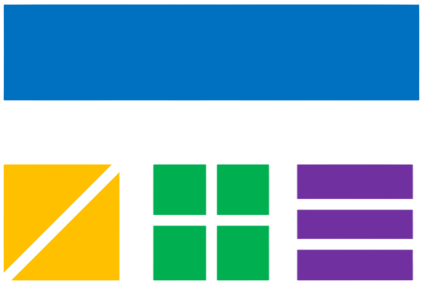Rental Property Calculator Information
What is a Rental Property Calculator?
Rental Property Calculator helps you analyze the cash flow, return on investment (ROI), and profitability of rental properties. Enter your purchase price, rent, expenses, and loan details to see your projected returns. This tool is ideal for real estate investors and landlords who want to evaluate potential investment properties.
How Rental Property Analysis Works
Rental property analysis considers income, expenses, financing, and appreciation. The calculator helps you understand the financial viability of a rental property investment by analyzing key metrics:
- Gross Rent: Total rent collected before expenses
- Net Operating Income (NOI): Gross rent minus operating expenses
- Cash Flow: NOI minus mortgage payments
- ROI: Return on investment, usually annualized
- Cap Rate: NOI divided by property value
- Cash-on-Cash Return: Annual cash flow divided by cash invested
How to Calculate Cash Flow & ROI
The formula for cash flow is:
- Gross Rent = Total monthly rent collected from tenants
- Expenses = Property taxes, insurance, maintenance, utilities, property management
- Mortgage Payment = Monthly principal and interest payment
- Cash Flow = Net income after all expenses and mortgage
Example: $2,000 rent, $500 expenses, $1,000 mortgage
Monthly Cash Flow: $500
ROI is calculated as:
- Annual Cash Flow = Monthly cash flow × 12
- Total Investment = Down payment + closing costs + initial repairs
- ROI = Percentage return on your invested capital
Example: $6,000 annual cash flow, $60,000 investment
ROI: 10%
Key Investment Metrics
Understanding Different Returns
Cash-on-Cash Return
Annual cash flow ÷ Cash invested
Best for evaluating immediate returns on your cash investment
Cap Rate
Annual NOI ÷ Property value
Best for comparing properties regardless of financing
Total Return
Cash flow + Appreciation + Principal paydown
Best for long-term investment analysis
ROI
Annual cash flow ÷ Total investment
Best for comparing to other investment opportunities
Tips for Real Estate Investors
- Research local markets and property values thoroughly
- Budget for repairs, vacancies, and unexpected costs (typically 5-10% of rent)
- Compare financing options and interest rates from multiple lenders
- Consider property management costs if you don't want to self-manage
- Track your returns and adjust your strategy as needed
- Factor in tax benefits like depreciation and mortgage interest deductions
- Plan for long-term appreciation and market cycles
Common Expenses to Consider
- Property Taxes: Annual taxes based on property value
- Insurance: Property and liability insurance coverage
- Maintenance: Regular upkeep and repairs
- Property Management: Professional management fees (typically 8-12% of rent)
- Utilities: If included in rent or paid by landlord
- Vacancy: Budget for periods when property is unrented
- HOA Fees: If applicable to the property
- Legal/Accounting: Professional services for tax preparation and legal matters
Frequently Asked Questions (FAQ)
Q: What is a good ROI for rental property?
A: Many investors aim for 8–12% ROI, but it depends on your market and risk tolerance. Higher returns often come with higher risk.
Q: Should I use a property manager?
A: Property managers can save time and handle tenant issues, but charge a fee (usually 8–12% of rent). Consider your time availability and local market.
Q: How do I finance a rental property?
A: Options include conventional loans, FHA/VA loans (for multi-family/owner-occupied), and cash purchases. Investment property loans typically require 20-25% down.
Q: What expenses should I expect?
A: Taxes, insurance, maintenance, repairs, property management, vacancies, and utilities (if not paid by tenant). Budget 25-35% of gross rent for expenses.
Q: How do I calculate vacancy loss?
A: Estimate 5-10% of annual rent for vacancy loss, depending on your market. This accounts for time between tenants and potential rent reductions.
Important Disclaimers
Disclaimer: This calculator provides estimates for educational purposes only. Actual rental property returns may vary significantly based on market conditions, property management, tenant quality, and other factors.
Always consult with a real estate professional, financial advisor, or tax professional before making investment decisions. This calculator does not account for all possible expenses, market risks, or special circumstances.
Real estate investing involves significant risks including market fluctuations, property damage, tenant issues, and financing risks. Past performance does not guarantee future results.
